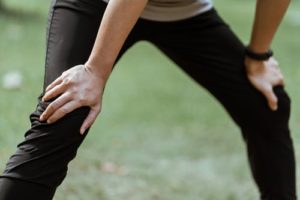What?
INTERMITTENT FASTING is a program based on alternating periods of fasting and feeding our body. This model is not precisely a diet, since it does not emphasize what you have to eat but when you have to eat.
Intermittent fasting involves not eating for a certain number of hours before eating normally again. This food model has an aesthetic impact on the body. It facilitates the burning of fat and accumulated calories. In addition, it favors the mechanism of autophagy, which activates internal recycling. These effects can be beneficial to your fitness routine.
The fats in your body are transformed into energy, which you can use to improve your performance.
Although it may seem incredible, INTERMITTENT FASTING Is easy to follow since you don’t have to follow meal times or select certain foods. You should choose this method if you want to lose weight, but no traditional diet motivates you.
Follow these tips – The Do’s
If you want to make INTERMITTENT FASTING a success, follow these tips to achieve the expected results.
–Drink lots of water. The correct hydration is fundamental for you to feel good while the hours of fasting pass. You can also drink natural juices or infusions such as tea and coffee.
–Sleep what your body needs. If you are going to fast for many hours, you should sleep 8 hours so that your body is well rested and your mind remains alert.
– Maintain strong muscle mass, including strength exercises in your training routine. Eat good quality proteins, you can opt for nutritional supplements under a doctor’s prescription.
–Try to combine this food program with your social life. On days when you fast intermittently, don’t go to parties or social gatherings where there is food and alcohol. That’s why you should schedule your fasts correctly.
–Be patient, especially at the beginning of this fitness experience. Your first intermittent fast may be difficult, but then your body will get used to it.
Avoid these behaviours – The Don’ts
INTERMITTENT FASTING should be followed carefully by avoiding certain behaviors that can seriously harm your health.
– When you eat again, don’t overdo it with large portions of food. This will damage the work and effort that went into your fasting. Eat high quality proteins such as fish, soy, vegetables and eggs.
-Do not try to lose more than 2.2 lbs (1Kg) per week.
-Don’t do an intermittent fast if you have any of these diseases: diabetes, cancer or any cardiovascular disease.
-This method is not suitable for: children, the elderly, people who have or have had eating disorders, pregnant women, women who are breastfeeding their babies.
-Don’t follow an intermittent fast because it just occurred to you or because it’s fashionable. Consult your doctor before following this method of eating.
Conclusion
INTERMITTENT FASTING requires discipline and good will to accomplish it correctly. This fitness experience can be helpful in losing weight and gaining muscle mass. Your body will transform fat into energy and your sports performance will be optimal.
Before following this method of eating, consult your doctor so you don’t make any mistakes.













More Stories
Uh Oh! You’ve Gained Some Weight
The Benefits of Almonds in Losing Weight
Pros And Cons Of A High Protein Diet